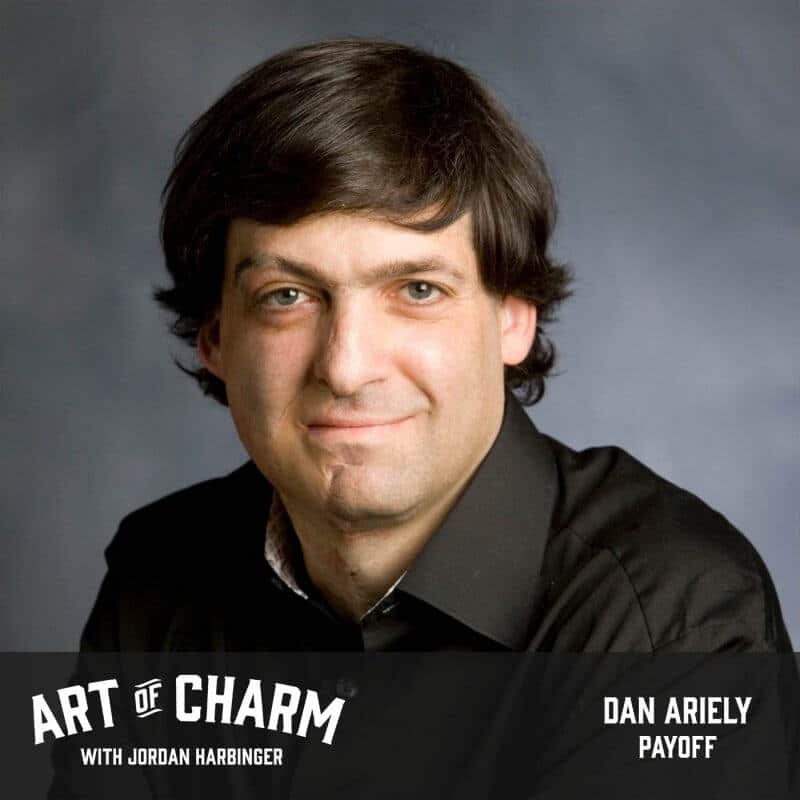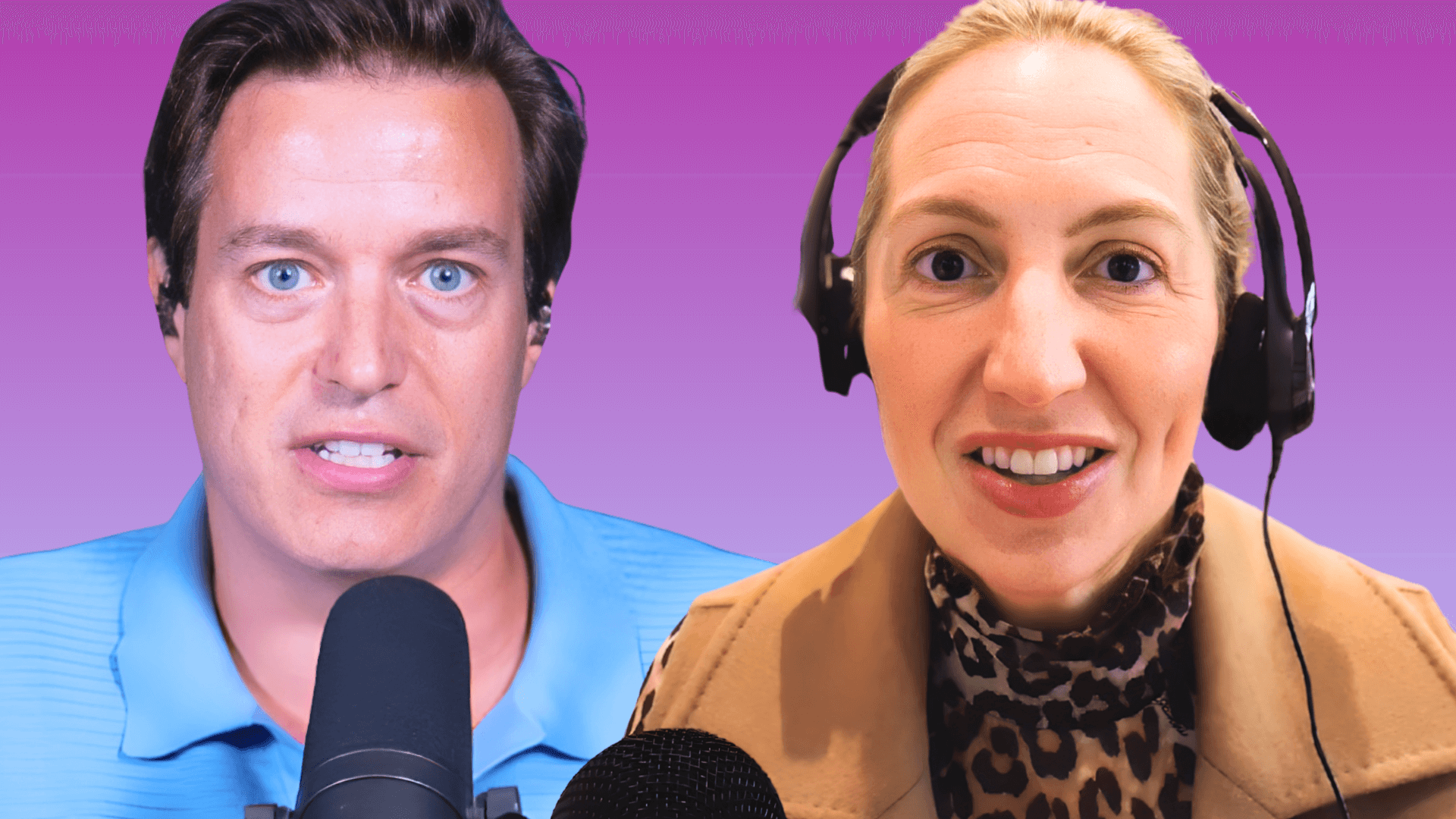Dan Ariely (@danariely) is a behavioral economist and bestselling author of Predictably Irrational: The Hidden Forces That Shape Our Decisions and the upcoming Payoff: The Hidden Logic That Shapes Our Motivations.
The Cheat Sheet:
- How does the What the Hell effect keep us making bad decisions even when we know they’re bad?
- Are we ever truly rational, unbiased, or impartial?
- What’s the best time to appear before a judge?
- Transparency in our lives can often backfire.
- How motivation works (and doesn’t work) and how we can use our own psychology against ourselves.
- And so much more…
[aoc-subscribe]
We may think of ourselves as logical and reasonable, going through motions governed by what we believe to be right. But if we were to examine them under a microscope, would our motivations prove to be composed of a rational framework, or are there invisible, inscrutable reasons for our behavior even we can’t explain?
Behavioral economist Dan Ariely, author of Predictably Irrational: The Hidden Forces That Shape Our Decisions and the upcoming Payoff: The Hidden Logic That Shapes Our Motivations joins The Art of Charm to help us better understand the hidden clockwork that makes us tick. Enjoy!
More About This Show
Have you ever tried to get in shape, only to be daunted by a brief hiccup in what you planned as the perfect remedy that sends you all the way back to where you started? Maybe you couldn’t make it to the gym this morning. Rather than forgiving the lapse and either settling for a shorter workout of some kind or having fewer calories throughout the day, you might succumb to what behavioral economist Dan Ariely calls the What the Hell effect. This is when you make the decision to have a pizza for dinner and tell yourself the carefully planned fitness regimen will commence tomorrow. Or maybe next week. Or next month.
“The notion is we view ourselves in a binary way,” says Dan. “We’re either good or bad. And if you’re 92 percent good, you can still think of yourself as a good character. But if you’re 78 percent good, is it really worth the effort to move to 92 percent? So basically what happens is that, as long as we’re not on the good side, we say ‘what the hell?’ because we don’t enjoy the middle ground. The middle ground is not helping us define who we are.”
Rather than trying to fix a problem that we see as mostly broken, it’s common for us to hope for a clean slate or a reset button of some kind. This is why mechanisms like Catholic confession are so powerful.
“We’ve done some experiments on this,” says Dan, “and on [the documentary] (Dis)Honesty in particular where we get people to cheat and then we change how they cheat and we give them a chance to confess. It turns out that the two elements of confession — admitting what you did wrong and asking for forgiveness — are both crucial.”
While our civic society doesn’t have a comparable mechanism, the closest might be the New Year resolution. Whether or not it’s an effective mechanism can probably be answered best by anyone who’s actually made it to the end of the old year with the promises of the previous year still intact.
Rather than opting for the big reset of a new day or a new year, however, Dan says we might try smaller resets — rituals or statements of some kind — that offset what we see as today’s failures. If we miss a workout, for instance, we should try doing 10 pushups. If we slip up and eat a piece of cake at the office because it was somebody’s birthday, we should take the stairs instead of the elevator for the rest of the day.
Awareness of an outside perspective also acts to keep us more honest than we do on our own — no matter how good we perceive ourselves to be. This might explain why many students who take college seriously opt to study in public spaces (such as the library) where there’s a chance of being scrutinized by others instead of staying in their dorm room, alone, tempted by Facebook and other distractions.
Lack of an outside perspective may also explain why a lot of people who work from home choose to take their laptop to the coffee shop to take care of business instead of in the relative privacy of a home office. But a lot of people never truly adapt to effectively working from home and fall prey to the temptations of doing everything but work. Or the work they do manage to accomplish is of the mostly small and meaningless variety — great in quantity, but lacking in quality. Dan says the name for this is structured procrastination.
“The prototype for this is making to do lists,” says Dan. “You make a to do list, and item number one is…make a to do list! And you cross it out. You write things and you cross them out and you haven’t done that much…the process of doing small things and checking them off gives us a sense as if we’re making progress. Where the hard things are very bizarre because the…sense of progress is very elusive.”
Listen to this episode of The Art of Charm in its entirety to learn more about how Dan keeps structured procrastination in check when writing books, how to better understand (and appreciate) the journey of thinking, how implementation intention keeps us making fuzzy plans that never really go anywhere, how a calendar might still be one of the best productivity tools around (especially when augmented with hacks that help you utilize — instead of waste — the most productive hours of the day), why we experience cancel elation, how externally defined identity rules help us adhere to discipline in a way we won’t on our own, why even the best of us lie and cheat sometimes, and lots more.
THANKS, DAN ARIELY!
If you enjoyed this session with Dan Ariely, let him know by clicking on the link below and sending him a quick shout out at Twitter:
Click here to thank Dan Ariely at Twitter!
Resources from this episode:
- Payoff: The Hidden Logic That Shapes Our Motivations by Dan Ariely
- Predictably Irrational: The Hidden Forces That Shape Our Decisions by Dan Ariely
- (Dis)Honesty — The Truth About Lies (Dan’s documentary)
- Dan Ariely’s website
- Dan’s TED Talk: Are We in Control of Our Own Decisions?
- Dan Ariely at Twitter
- Google Acquires Timeful to Bring Smart Scheduling to Google Apps by Darrell Etherington, TechCrunch
You’ll also like:
- The Art of Charm Challenge (click here or text 38470 in the US)
- The Art of Charm Bootcamps
- Best of The Art of Charm Podcast
- The Art of Charm Toolbox
- The Art of Charm Toolbox for Women
- Find out more about the team who makes The Art of Charm podcast here!
On your phone? Click here to write us a well-deserved iTunes review and help us outrank the riffraff!




